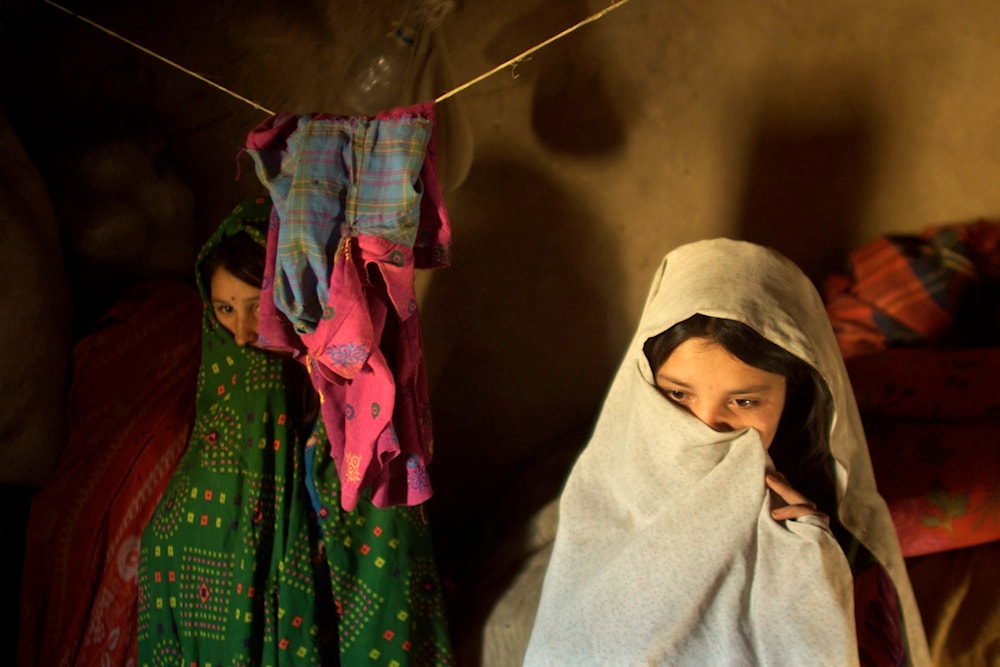Pakistan orders all Afghan refugees to leave by March 31
Pakistan has reaffirmed its commitment to hosting foreign nationals while stressing the need for all residents to comply with national laws.
-

Najeeba Mugal, 13, right, and her sister Laleema, Afghan refugees who arrived in Quetta from Afghanistan with their family earlier in the week, stand in the four-square-meter mud house where they sought refuge, on Friday, September 28, 2001. (AP)
Pakistani authorities have ordered all "illegal foreigners," including those holding Afghan Citizen Cards (ACC), to leave the country by March 31, warning that deportations will begin on April 1 for those who remain beyond the deadline, according to the Ministry of Information and Broadcasting.
"In continuation to Government’s decision to repatriate all illegal foreigners, national leadership has now decided to also repatriate ACC holders. All illegal foreigners and ACC holders are advised to leave the country voluntarily before 31 March 2025," the ministry said in a statement on Friday.
The statement emphasized that while Pakistan has welcomed foreign nationals and remains committed to its responsibilities as a responsible state, all residents must adhere to legal requirements and comply with national laws.
The UN’s International Migration Organization estimates that since September 2023, Pakistan has repatriated nearly 825,000 Afghan refugees, including 18,500 who were expelled in January 2025 alone.
Regional media reports indicate that Islamabad's decision to expel Afghan refugees is linked to an increase in terrorist attacks, which Pakistani authorities attribute to Afghan nationals and members of the Tehrik-e Taliban Pakistan extremist group. The Afghan government has denied any involvement in these attacks.
It is worth noting that a female suicide bomber targeted a Pakistani paramilitary convoy in Balochistan on Monday, killing one soldier and injuring four others, officials confirmed.
Go in-depth
While female suicide bombers remain rare in Pakistan, the BLA has previously deployed women in such operations. In April 2022, a woman suicide bomber killed three Chinese academics and their Pakistani driver outside the Confucius Institute at Karachi University. The BLA later claimed responsibility for the attack.
The group has also repeatedly targeted foreign-backed energy projects, accusing outside actors of exploiting Balochistan’s vast resources while neglecting the province’s impoverished population.
Balochistan, a mineral-rich but economically deprived region bordering Afghanistan and Iran, has been the scene of long-running insurgencies driven by ethnic, sectarian, and separatist tensions. Security forces have struggled for decades to quell the violence.
Pakistan endured its deadliest year in a decade in 2024, with more than 1,600 people killed in militant attacks, including 685 security personnel, according to the Islamabad-based Center for Research and Security Studies. The violence has been largely confined to the country’s border regions, with incidents in major cities becoming increasingly rare.
So far in 2025, at least 81 people have been killed in attacks across Pakistan, with security forces remaining the primary target of anti-state militants, according to an AFP tally.
Read next: Iran dismantles terrorist cell, kills member near border with Pakistan

 3 Min Read
3 Min Read








